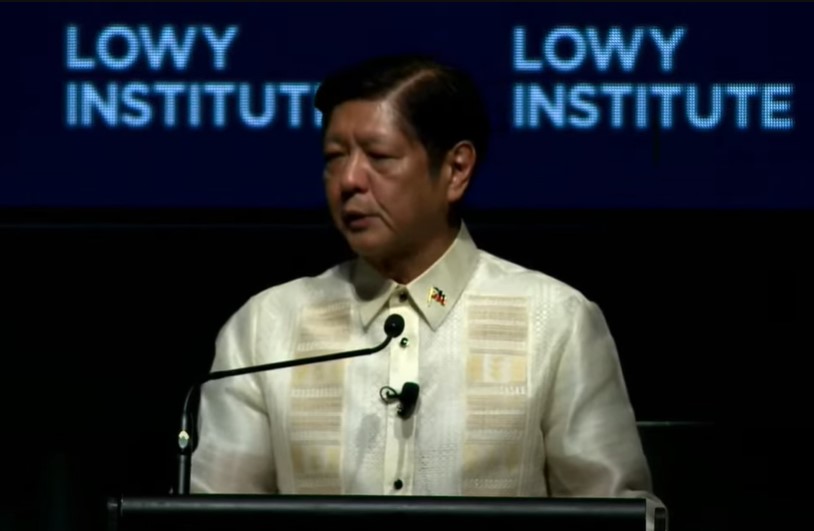Marcos hopes Australia’s Southeast Asia Economic Strategy can help PH economy
By ANNA FELICIA BAJO, GMA Integrated News Published March 4, 2024 6:06pm MELBOURNE, Australia – President Ferdinand ”Bongbong” Marcos Jr. expressed hope on Monday that Australia’s Southeast Asia Economic Strategy to 2040 would benefit the Philippine economy. ”We must also build economic resilience against future uncertainties. We need to ensure that our economies remain powerful […]


By ANNA FELICIA BAJO, GMA Integrated News
MELBOURNE, Australia – President Ferdinand ”Bongbong” Marcos Jr. expressed hope on Monday that Australia’s Southeast Asia Economic Strategy to 2040 would benefit the Philippine economy.
”We must also build economic resilience against future uncertainties. We need to ensure that our economies remain powerful tools that positively shape the lives of our peoples and ensure the sustainability of the planet,” Marcos said in his speech at the Lowy Institute.
The Philippine president was invited as a speaker by the Lowy Institute, an independent, nonpartisan international policy think tank that provides research and perspectives on the international trends shaping Australia and the world.
”We expect Australia’s Southeast Asia Economic Strategy to 2040 that will build on the new ASEAN-Australia-New Zealand Free Trade Agreement (AANZFTA) and the Regional Comprehensive Economic Partnership (RCEP),” Marcos added.
The Australian government said the strategy has a range of general recommendations to boost economic engagement between Australia and Southeast Asia, as well as specific recommendations for each country.
The president also welcomed the growing interest in Australia to explore and pursue investment opportunities in the Philippines, which is projected to lead ASEAN’s growth this year.
Marcos said the Philippines and Australia made a commitment to work together to develop capacities in critical infrastructure security, particularly in transport and telecommunications.
“We will also broaden cooperation on mineral resources development, energy transition, and space science and technology applications. Last week, we signed an agreement on cyber and critical technology cooperation that will promote the secure and peaceful uses of cyberspace,” he said.
“Beyond our bilateral partnerships, we see value in building resilience, too, through reinforced habits of cooperation amongst like-minded partners in specific areas,” he added.—RF, GMA Integrated News














